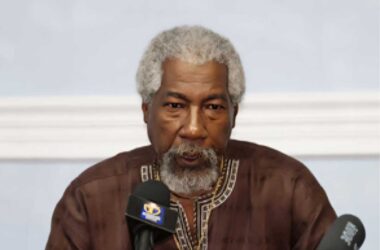
China’s 74 years as a People’s Republic has seen the world’s best example of a nation’s ability to purposefully build on its development while navigating the global political and economic currents as they come.
The world’s second-biggest country, with the second biggest population and the longest recorded history of a continuing civilization, has had to put-up with invasions and other external influences that led to the 1949 Revolution led by the Communist Party of China (CPC) under Mao Zedong.
The nation also experienced its own internal political and cultural adjustments up to the opening of the decade of the1980s that led to the reforming leadership pioneered under Premier Deng Xiaoping.
The four decades since Deng saw China open-up to the world and – at the same time – access and speedily integrate with the global economy, every leader and government pursuing centrally pre-planned policies shaped according to everyday realities and not tailored to only suit foreign measurements.
The PRC quickly ascended the ladders of international trade, finance, science and technology, politics and diplomacy and is today a leading and respected leader at the United Nations (UN).
But China didn’t get to where it’s at today as a respected Permanent Member of the UN Security Council with easy compliance of the Western world, instead earning its every position on the global stage through its own long and sustained efforts.
Chinese rejuvenation and modernization today aims to always bring its huge population up-to-date with new times and contented as citizens of a nation that cares for all, while also working with the rest of the world to achieve the UN’s Sustainable Development Goals (SDGs).
The PRC has led the world in Poverty Reduction — way-ahead of the 2030 target date — while concentrating on ensuring its population develops with harmony between Humanity and Nature, through material and cultural-ethnical advancement, based on peaceful development – and leaving no-one behind.
China has for decades posted annual growth rates across-the-board — and even after the COVID-19 pandemic, the PRC still out-performs its main global competitors.
Beijing is today posting lower growth rates that are still way-above and ahead-of the G-7 and EU member states, keeping China in the black margin, while others grew downward into historic red negative growth featuring high lows.
Thanks mainly to the UK government’s Ukraine war support costs and effects of sanctions against Russia, the British Pound fell drastically against the Euro and the US dollar, leaving the chieftains in London and other palaces of global capitalism in tailspins of economic catastrophe.
European citizens ended-up unable to eat well or afford the skyrocketed costs-of-living as the economic sanctions imposed by politicians and warmongers in the G-7, European Union (EU) and the North Atlantic Treaty Organization (NATO) backfired.
Central Banks raced to raise interest rates incrementally, speeding-up inflation and precipitating mountainous fears of recession.
While Western nations have been pouring hundreds of billions of dollars into the perpetual continuity of the war in Ukraine, China was the only one to put a workable peace plan on the table that Russia and Ukraine were both willing to discuss.
And further, while the US, EU and NATO continue fighting to gain military and economic traction in the Asia-Pacific region and counter Beijing’s growing acceptance by more governments as a tried-and-tested, reliable global partner, China and its developing partners have also been tending to their own needs for unison at the global level and taking related actions that are today paying-off with the biggest dividends to all.
China and fellow members of the BRICS alliance, after two decades, are today expanding into a new and dominant global power grouping, representing the most people and lands, human and natural resources – and a common GDP that dwarfs all their major Western competitors together, outsizing the US dollar 55 times.
China’s growing world influence was again demonstrated in the way it has dealt with African nations over the past three decades, meeting regularly at summits with leaders and developing mutual ties that benefit African nations and help open-up, widen and deepen their access to their natural resources, to build infrastructure links that also benefit neighbors and the continent.
On the other hand, especially when presidential elections are approaching, US presidents tend to make loud promises to African counterparts that are never delivered, or given under terms that benefit US interests more than continental Africa.
The Taiwan question still remains one of stubborn refusal by some major Western nations to live by their formal diplomatic claim of understanding and accepting the One China policy, while Caribbean and American nations now comprise more-than-half of Taiwan’s remaining allies.
China’s development policies, at home and abroad, continue to revolve around peace being the most-essential requirement for global development, but as with Taiwan and the South China Sea, the PRC has always ensured it can defend the mainland and prevent Taiwan island from ever becoming a military threat to the mainland.
That much has been clear since the ill-advised and costly visit to the island by then US House Speaker Nancy Pelosi in 2021 and more recently in the South China Sea.
China’s independent diplomatic credentials have again been recently demonstrated by its refusal to support yet another foreign intervention in Haiti and calling for peaceful approaches to all latest outbreaks of war, including the current Israel-Gaza conflict that today threatens to drag the entire Arab world into an escalating conflict with deadly global security implications.
As the biggest contributor to the UN’s peacekeeping efforts, China will again be required to lend its dependable levels of sanity to Security Council discussions on the latest costly battles in the deepening conflict between Israelis and Palestinians.
Thanks to the early Deng effect, China, today at 74, continues Mao’s Long March, with Xi Jinping at the wheel, as the PRC sails confidently towards ultimate formal establishment of Socialism with Chinese Characteristics at its Centenary, in 2049.











